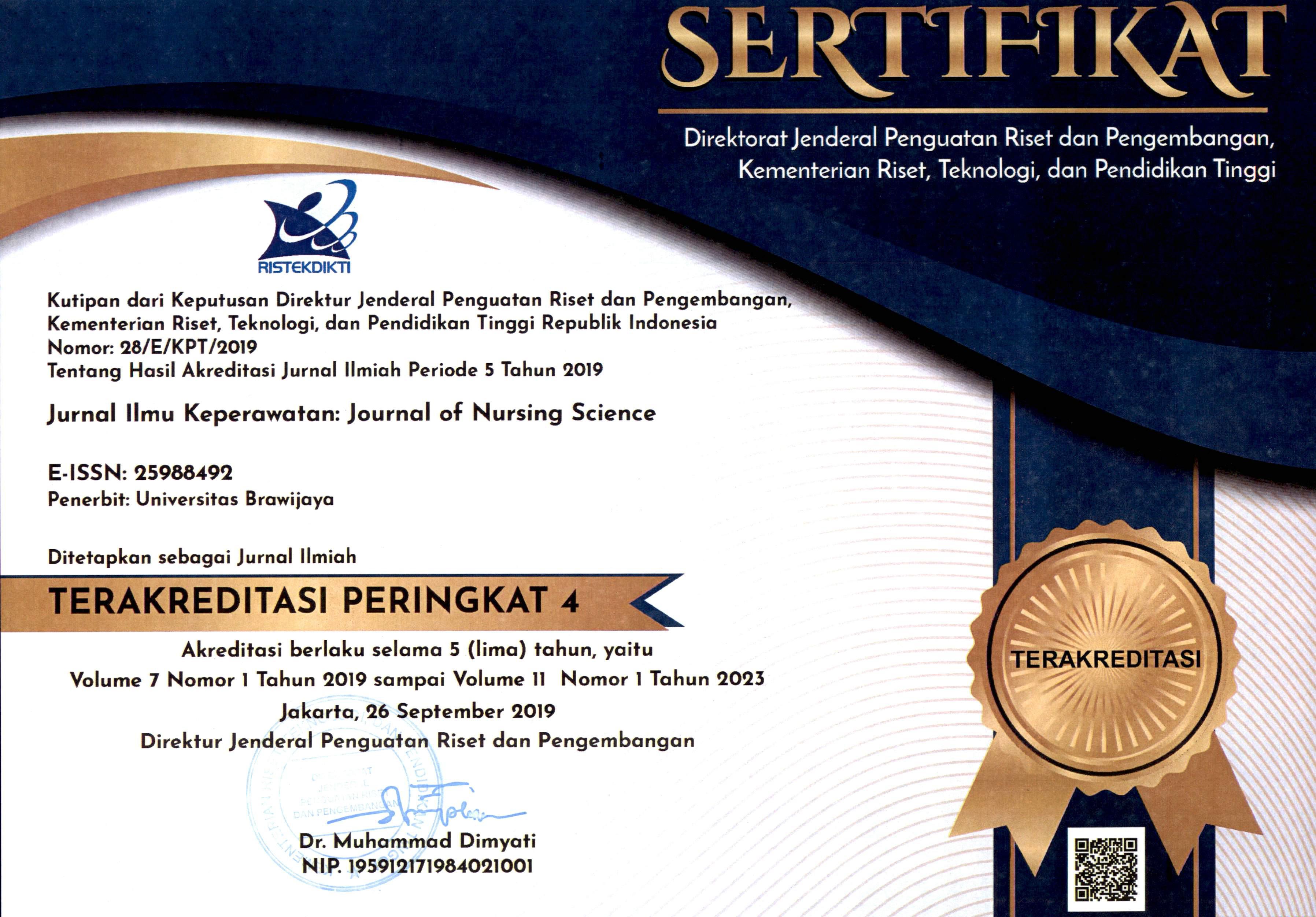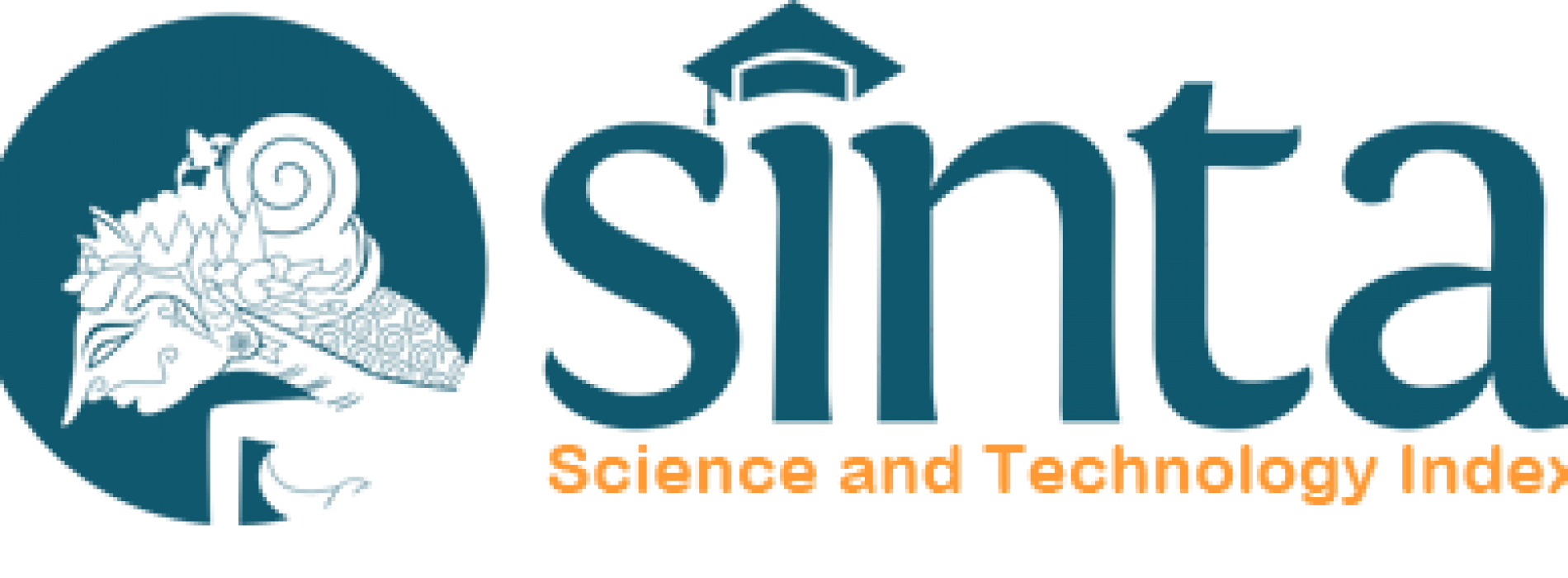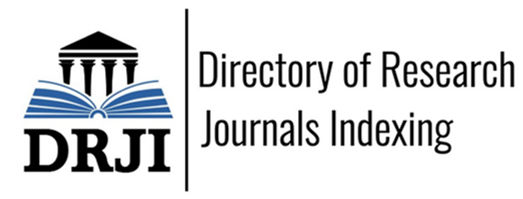Phenomenology: The Experience of HIV/AIDS Mothers in Self Disclosure to Their Children in Yogyakarta
DOI:
https://doi.org/10.21776/ub.jik.2021.009.01.13Keywords:
Mothers' Self-disclosure, HIV/ AIDS, ChildrenAbstract
References
- Alemayehu, A., Aregay, A., Kalayu and Yebyo, H. (2014). HIV Disclosure to Sexual partner and associated factors among women attending ART Clinic at Mekelle hospital, Northern Ethopia. BMC Public Health 2014,14:746
- Ashaba, S., Kaida, A., Burns, B. F., Neil, K. O., Dunkley, E., Psaros, C., … Matthews, L. T. (2017). Understanding coping strategies during pregnancy and the postpartum period : a qualitative study of women living with HIV in rural Uganda. BMC Pregnancy and Childbirth, 17(138), 1–10. https://doi.org/10.1186/s12884-017-1321-9
- CDC. (2018). HIV Among Pregnant Women, Infants, And Children. Diakses di Https://Www.Cdc.Gov/Hiv/Group/Gender/Pregnantwomen/Index.Html pada tanggal 2 Desember 2018
- Conserve et al. (2014). Disclosure and Impact of Maternal HIV+ Serostatus on Mothers and Children in Rural Haiti. Matern Child Health Journal. December; 18 (10): 2309 – 2315. Doi: 10.1007/s10995-013-1375-x
- Dinas Pariwisata. (2019). Perkembangan Pariwisata Yogyakarta. https://pariwisata.jogjakota.go.id/detail/index/428
- Id, N. G. D., Hailemichael, R. G., Shewa-amare, A., & Hillman, J. (2019). HIV Disclosure : HIV-positive status disclosure to sexual partners among individuals receiving HIV care in Addis Ababa , Ethiopia. 1–17.
- Liamputtong, P and Harivatorn, N. (2014). Tell or not to tell: disclosure to children and familyamongst Thai women living with HIV/AIDS. Health Promot. Int. doi: 10.1093/heapro/dau057. Tersedia dalam http://heapro.oxfordjournals.org/content/early/2014/07/17/heapro.dau057.full.pdf+html diakses tanggal 02 Februari 2016
- Madiba & Mokgatle. (2015). Perceptions and Experiences about self disclosure of HIV status among adolescents with perinatal acquired HIV poor resourced communities in South Africa. HIV research and treatment. Volume 2016. Tersedia di https://www.ncbi.nlm.nih.gov/pmc/articles/PMC5031873/pdf/ART2016-2607249.pdf diakses pada tanggal 2 Mei 2018
- Pusat Data dan Informasi Kementrian Kesehatan Republik Indonesia. (2014). Situasi dan Analisis HIV AIDS. Tersedia dalam http://www.depkes.go.id/resources/download/pusdatin/infodatin/Infodatin%20AIDS.pdf, diakses tanggal 02 Februari 2016.
- Pusdatin. (2020). Situasi dan Analisis HIV AIDS. Tersedia di https://pusdatin.kemkes.go.id/resources/download/pusdatin/infodatin/infodatin-2020-HIV.pdf
- Shaw & Hunter. (2012).HIV Transmission. Cold Spring Harb Perpect Med. 2012; 2
- Sowell, Seals, Phillips, & Julious. (2003). Disclosure Of HIV Infection: How Do Women Decide To Tell?. Health Education Research. Vol.18 No.1 2003. Pg. 32 – 44
- Stutterheim, S. E. (2016). Disclosure of HIV Status to Health Care Providers in the Netherlands : A Qualitative Study. Journal of the Association of Nurses in AIDS Care, 1–10. https://doi.org/10.1016/j.jana.2016.02.014
- Visser, M., & Hlungwani, A. J. (2020). Maternal HIV status disclosure to young uninfected children: psychological variables of the mother. African Journal of AIDS Research, 19(1), 48–56. https://doi.org/10.2989/16085906.2019.1681481
- Wekesa, Eliud And Coast, Ernestina. (2013). Living With HIV Post-Diagnosis: A Qualitative Study Of The Experiences Of Nairobi Slum Residents. BMJ Open, 3 (E00239). DOI: 10.1136/Bmjopen-2012-002399
Downloads
Published
How to Cite
License
Authors published in this journal agree to the following terms:
1. The copyright of the received article shall be assigned to the journal as the publisher of the journal. The intended copyright includes the right to publish the article in various forms (including reprints). The journal maintains the publishing rights to the published articles.
2. Authors may enter into separate additional contractual agreements for the non-exclusive distribution of the published journal version of the work (for example, posting it to an institutional repository or publishing it in a book), with acknowledgment of their initial publication in this journal.
3. Authors are permitted and encouraged to post their work online (e.g. in an Institutional Repository or on their website) before and during the submission process, as this can result in a productive exchange, as well as earlier and larger citations of the published work.
4. Articles and all related material published are distributed under Creative Commons Attribution-NonCommercial 4.0 International License or CC BY-NC 4.0 license.
JNSU is licensed under a Creative Commons Attribution-NonCommercial 4.0 International License or CC BY-NC 4.0 license.
Most read articles by the same author(s)
- Rizqi Wahyu Hidayati, Indah Winarni, Septi Dewi Rachmawati, SOCIAL SUPPORT RECEIVED BY SUBSTANCE ABUSER IN SLEMAN REGENCY , Journal of Nursing Science Update (JNSU): Vol. 8 No. 1 (2020)






























